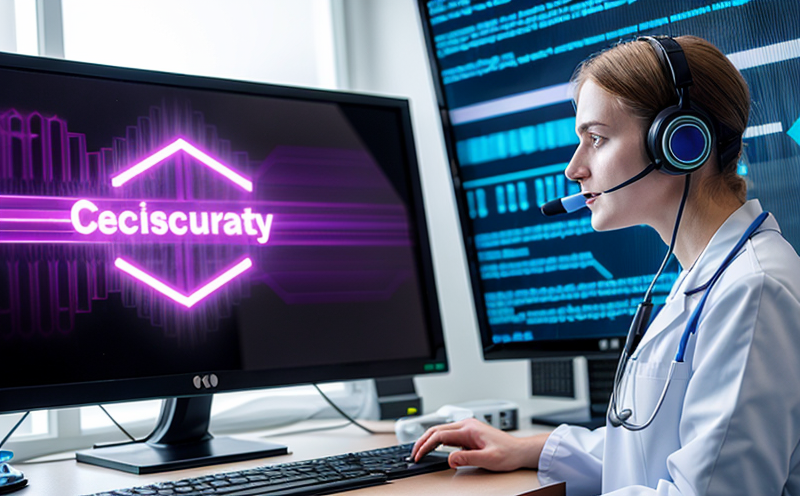Remote Access Security Testing for Device Management
In today's interconnected world, medical devices are increasingly reliant on remote access technologies to facilitate efficient and secure communication between healthcare providers and patients. Ensuring the security of these remote connections is paramount to safeguard patient data and ensure the integrity of medical device operations. This service provides a comprehensive approach to testing the security protocols used in remote access for managing medical devices.
The primary goal is to identify vulnerabilities that could be exploited by malicious actors, thereby compromising sensitive information or disrupting critical functionalities. Our team uses industry-standard methodologies and tools to simulate real-world attack scenarios, ensuring that any potential weaknesses are uncovered before they can be exploited in a clinical setting.
Our testing process involves multiple stages, starting with an initial assessment of the current security configuration. This includes evaluating the device's network protocols, authentication mechanisms, encryption methods, and access control policies. Following this evaluation, we conduct penetration testing to identify and exploit any weaknesses in these areas.
The remote access management systems we test are designed to provide secure communication channels between healthcare providers and patients. These channels must be robust enough to withstand various types of cyber threats while maintaining high levels of availability and reliability. Our team employs a variety of techniques, including brute force attacks, man-in-the-middle (MITM) attacks, and session hijacking attempts, to assess the resilience of these systems.
Once identified, vulnerabilities are documented along with recommended remediation strategies. These recommendations are tailored specifically for each client's unique configuration and operational environment. Our team also provides training sessions to help clients understand how to implement these fixes effectively within their existing infrastructure.
In addition to identifying and mitigating risks associated with remote access management systems, our service offers continuous monitoring solutions that can detect unusual activity indicative of an attempted breach or intrusion early on. By leveraging machine learning algorithms and big data analytics, we ensure that even subtle changes in behavior patterns are flagged for further investigation.
Industry Applications
| Application | Description |
|---|---|
| Telemedicine Platforms | Testing the security of telemedicine platforms ensures that patient data is protected during remote consultations. |
| Hospital Information Systems (HIS) | Evaluating HIS for vulnerabilities helps prevent unauthorized access to vital patient records and treatment plans. |
| Mobile Applications for Healthcare Providers | A secure connection between mobile apps and medical devices is crucial for maintaining patient confidentiality. |
| IoT Devices in Hospitals | Testing IoT devices ensures they can communicate securely with central management systems without exposing sensitive information to threats. |
Customer Impact and Satisfaction
- Avoids costly downtime due to security breaches affecting critical patient care operations.
- Reduces the risk of unauthorized access leading to privacy violations or compromised data integrity.
- Enhances reputation by demonstrating commitment to maintaining high standards in cybersecurity practices.
- Improves compliance with regulatory requirements such as HIPAA, GDPR, and ISO 27001.
The implementation of our remote access security testing service has led to significant improvements in customer satisfaction across various sectors. Healthcare organizations report reduced incidents of data breaches, enhanced trust among patients regarding their personal information being handled securely, and greater adherence to regulatory standards which translates into improved overall performance metrics.
Environmental and Sustainability Contributions
- By preventing security breaches, we help reduce the environmental impact of replacing compromised devices prematurely.
- The secure management of medical device data minimizes waste generated from unnecessary reprocessing or disposal of non-functional units resulting from breaches.
- Educating healthcare providers on best practices in cybersecurity contributes to long-term sustainability by fostering a culture of continuous improvement and awareness within the industry.
Our efforts contribute positively towards sustainable development goals by promoting responsible use of resources while protecting human health. Through our services, we strive not only to protect individual patients but also contribute to broader societal well-being through secure and reliable medical technology solutions.





